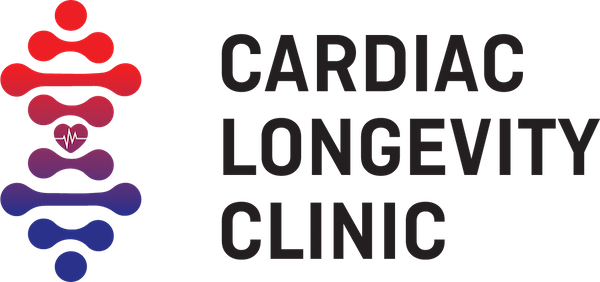The Importance of Omega-3 Supplementation for Longevity
Omega-3 fatty acids are a group of essential fats that play a crucial role in human health. They are termed “essential” because the body cannot produce them on its own, necessitating their intake through diet or supplementation. The three primary types of omega-3s are alpha-linolenic acid (ALA), found in plant sources like flaxseeds and walnuts; eicosapentaenoic acid (EPA); and docosahexaenoic acid (DHA), both of which are predominantly found in fatty fish. These fatty acids are vital for various bodily functions, including cell membrane integrity, hormone production, and anti-inflammatory responses. Omega-3 fatty acids benefits have been summarized below.

1. Reduction of Major Adverse Cardiovascular Events: The REDUCE-IT trial demonstrated that supplementation with icosapent ethyl, a form of EPA, significantly reduced the incidence of major adverse cardiovascular events (MACE) in high-risk patients. Participants receiving 4 grams daily of icosapent ethyl experienced a 25% reduction in cardiovascular death compared to those on a placebo (1).
2. Impact on Inflammatory Markers: A secondary analysis of the REDUCE-IT data revealed that while the placebo group showed worsening inflammatory markers, the icosapent ethyl group exhibited virtually no changes. This suggests that omega-3 supplementation may help mitigate inflammation, a key factor in cardiovascular disease (2).
3. Anti-Platelet Effects: Omega-3 fatty acids have been shown to exert anti-platelet effects. Platelets are blood cells that have a major role in formation of blood clots. Therefore, supplements with antiplatelet effects such as Omega-3 can reduce the risk of blood clots. Studies indicate that both EPA and DHA can inhibit platelet aggregation, enhancing the efficacy of antiplatelet medications like aspirin. This synergistic effect may lead to improved cardiovascular outcomes in patients at risk for heart disease.
Potential Mechanisms of Action: Omega-3 fatty acids are believed to exert their cardiovascular benefits through various mechanisms, including modulation of lipid metabolism, reduction of triglycerides, and improvement of endothelial function. Endothelial function is how well the inner lining of blood vessels works. Healthy endothelial function translates to better blood flow and better regulation of blood pressure and lower chance of developing plaque in the arteries. Omega-3 fatty acids may also enhance heart rate variability and reduce resting heart rate, both of which are beneficial for cardiovascular health.
Neuroprotective Effects
1. Cognitive Function and Brain Health: Omega-3 fatty acids, particularly DHA, are crucial for brain health. They are integral components of neuronal membranes and play a role in neurogenesis and synaptic plasticity. Research has shown that higher intake of omega-3s is associated with a lower risk of cognitive decline and dementia in older adults.
2. Anti-Inflammatory Properties: The anti-inflammatory effects of omega-3 fatty acids extend to the brain, where they may help protect against neuroinflammation, a contributing factor in neurodegenerative diseases such as Alzheimer’s. By modulating inflammatory pathways, omega-3s can potentially slow the progression of these conditions.
Despite the promising findings, the efficacy of omega-3 supplementation has been debated. The STRENGTH trial, which investigated the effects of a combination of EPA and DHA on cardiovascular events, found no significant reduction in major cardiovascular outcomes among participants compared to a placebo group. This trial suggests that not all omega-3 formulations may be equally effective, emphasizing the need for further research to clarify discrepancies across different studies (3).
Additionally, the VITAL trial did not find a significant reduction in cardiovascular events with omega-3 supplementation compared to placebo, further underscoring the complexity of omega-3’s role in heart health (4). Concerns have also been raised about the potential for omega-3s to increase the risk of atrial fibrillation in certain populations, particularly those with existing cardiovascular conditions.
Recommendations for Supplementation
Given the mixed evidence, it is essential for consumers to approach omega-3 supplementation with informed caution. Here are some recommendations:
Consult Healthcare Providers: Individuals should discuss omega-3 supplementation with their healthcare providers, especially if they have existing health conditions or are taking other medications.
How much Omega-3 supplements should you be taking? Adequate omega-3 dosage is paramount to its health effects. I typically recommend an Omega-3 daily dose containing 1 gram of EPA to my clients who are not at high risk of developing atrial fibrillation.
Focus on Dietary Sources (Omega-3 nutrition): Incorporating omega-3-rich foods in your diet can be a great way to ensure you meet your daily recommended dose of EPA. Sources of Omega-3 fatty acids include fatty fish (salmon, mackerel), flaxseeds, and walnuts can be beneficial. Supplements may be considered as an adjunct to a balanced diet.
In conclusion, while omega-3 supplementation shows promise for cardiovascular and neuroprotective health, ongoing research is necessary to fully understand its benefits and risks. Consumers should remain informed and consult with healthcare professionals to make the best choices for their heart and brain health.
- Cardiovascular risk reduction with icosapent ethyl for hypertriglyceridemia-REDUCE-IT trial. N Engl J Med. 2019.
- Association Between Achieved ω-3 Fatty Acid Levels and Major Adverse Cardiovascular Outcomes in Patients With High Cardiovascular Risk: A Secondary Analysis of the STRENGTH Trial. JAMA Cardiol 2021.
- Effect of high-dose omega-3 fatty acids vs corn oil on major adverse cardiovascular events in patients at high cardiovascular risk: the STRENGTH randomized clinical trial. JAMA. 2020.
- Vitamin D Supplements and Prevention of Cancer and Cardiovascular Disease. N Engl J Med. 2019.
Frequently Asked Questions:
What are the benefits of omega-3 fatty acids?
They have been shown in clinical studies to have cardiovascular and neuroprotective benefits. cardiovascular benefits are primarily via modulation of lipid metabolism, reduction of triglycerides, and improvement of endothelial function as well antiplatelet properties of Omega-3 fatty acids. Neuroprotective effects are primarily driven by reducing neuroinflammation, and involvement in neural regeneration.
How much omega-3 should I take daily?
You should be taking a minimum of 1 gram of Eicosapentaenoic Acid (EPA) per day.
Are omega-3 supplements safe for everyone?
Omega-3 supplements may not be safe for individuals with a history of atrial fibrillation or at risk of developing atrial fibrillation. Individuals should discuss omega-3 supplementation with their healthcare providers, especially if they have existing health conditions or are taking other medications.
What are the best dietary sources of omega-3?
Sources of Omega-3 fatty acids include fatty fish (salmon, mackerel), flaxseeds, and walnuts.
Can omega-3s improve brain health?
Omega-3 supplements can improve brain health by lowering risk of cognitive decline and dementia particualrly in older adults.
This blog post has been fact checked by a medical professional.

